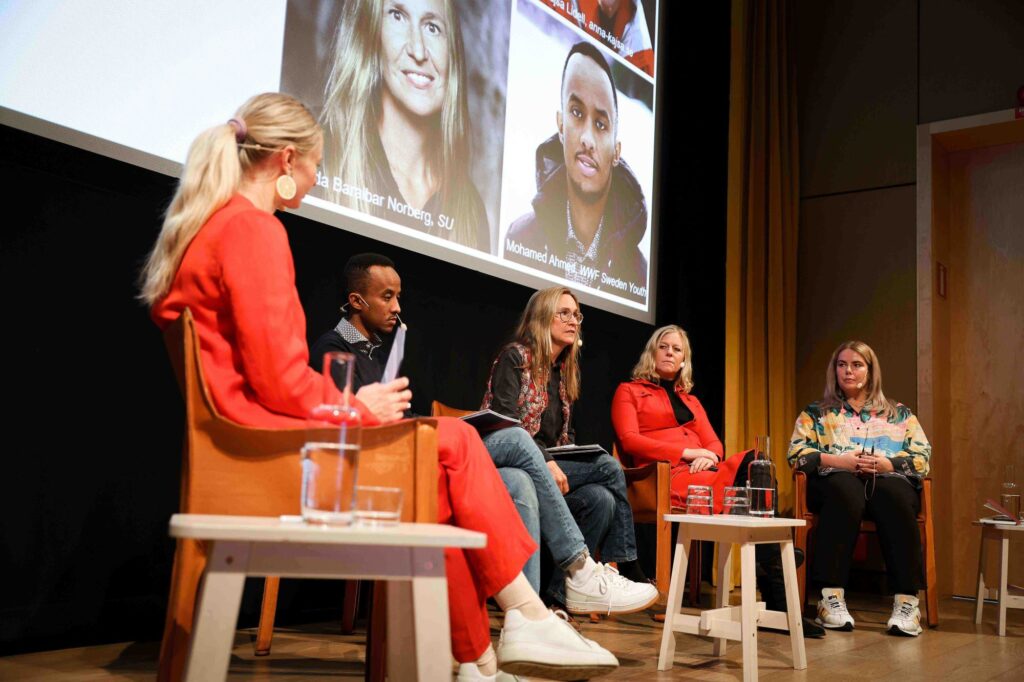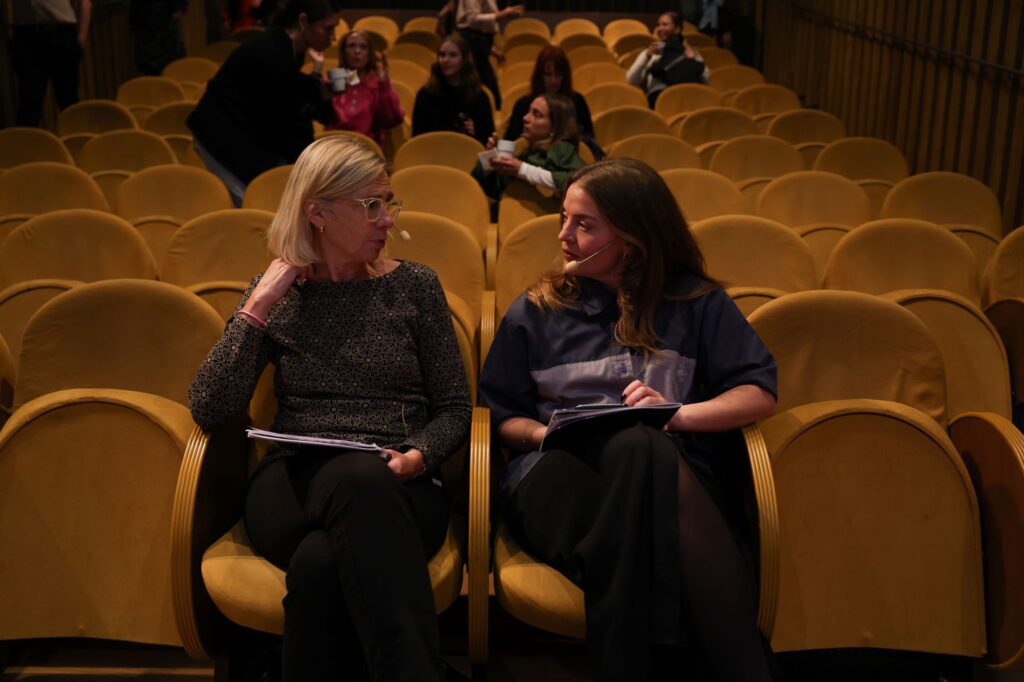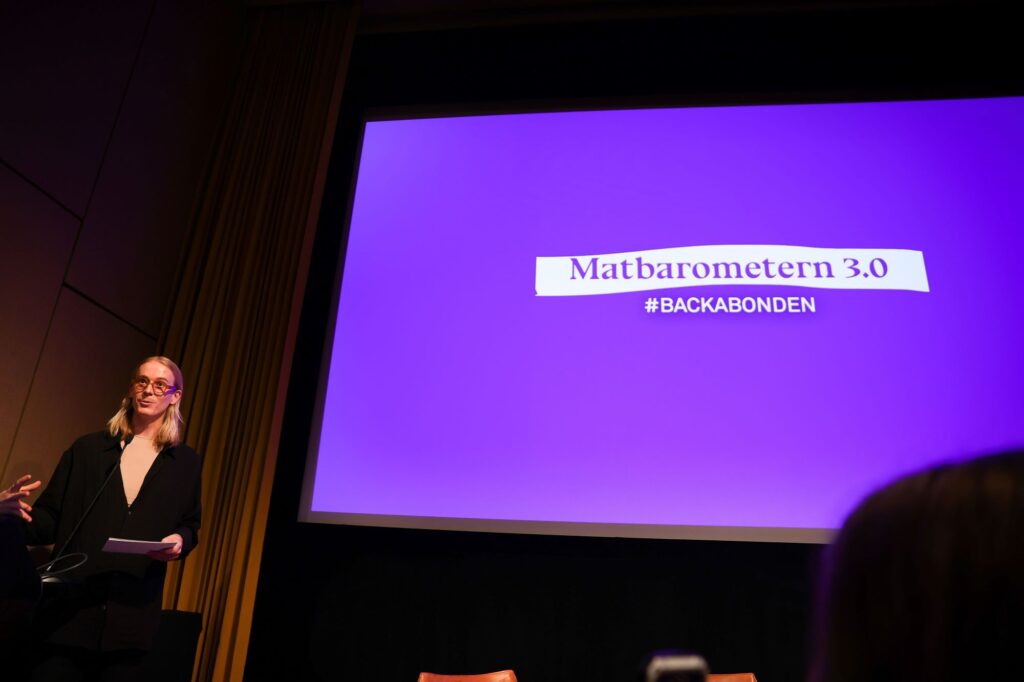With the rallying cry “Challenge the system”, SIANI, The Hunger Project and Reformaten invited a broad range of experts and activists to discuss new ways to transform the food system and fight hunger. The half-day workshop on 12 October resulted in several innovative ideas for transformative action – here are some highlights.
The event Utmana systemet (“Challenge the system”) was held at the Modern Museum in Stockholm on 12 October, in the lead-up to World Food Day. Activities included not only two panel discussions, moderated by Fanny Sturén from Reformaten, but also presentations and many informal conversations between the approximately 70 participants from academia, farming, politics, business, and civil society.
As a starting point for the first panel, focused on Swedish and European perspectives, Pelle Bengtsberg from Reformaten presented the results of a survey with Swedish parliamentarians working on agriculture and environmental issues. Read more about the survey Matbarometern (in Swedish).
The second panel was kicked off by an online keynote from The Hunger Project’s Global Vice President Rowlands Katocha, offering a more global outlook. Noting how world hunger is again growing, he urged everyone to shift their perceptions of hunger and search for bolder solutions.
The participants rose to the challenge – here are 10 key takeaways from the discussions (translated from Swedish):
Recognise the link between hunger and global food systems
“Hunger is the biggest solvable problem of our time,” according to Rowlands Katocha, but he felt that the root causes are often poorly understood. While it is true that climate change, conflicts, inequality, and the corona pandemic are important drivers, the role of global food systems should not be overlooked.
All speakers agreed that current global food systems need to undergo profound transformations, but they offered many different views on what that entails.
Connect the dots between local and global perspectives
The first panel mainly focused on Sweden and the EU but Maria Ölund, from Focali, University of Gothenburg, asked a question about how this can be linked to global perspectives. In response to that question, the panelists concluded that national debates can be misleading as they seldom acknowledge the real importance of food produced beyond national borders. “To be honest, there is no such thing as a Swedish food system, we’re extremely interconnected,” said Olga Grönvall Lund, Secretary-General of Reformaten.
“This is something we pay close attention to, though we may not always talk about it,” commented Annica Sohlström, Director General of the Swedish Food Agency. She stressed that choices made by Swedish consumers often have consequences elsewhere – cravings for Kenyan sugar snaps or Brazilian meat can create incentives for investments in huge monocultures or deforestation of rainforests.


